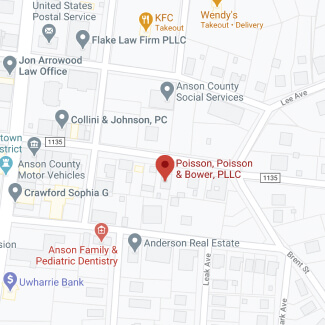
Overtime hours can be an excellent resource for workers and companies when they are both on the same page. Overtime work can allow workers to earn extra cash when needed, and overtime can help a company increase productivity and catch up during busy seasons.
However, too much overtime and pushing employees to the extreme can lead to devastating consequences for workers’ well-being.
At the law firm of Poisson, Poisson & Bower, PLLC, we want to help vulnerable workers understand how excessive overtime can complicate their physical and mental health and ruin relationships. Too much of a good thing can turn tragic. Our legal team wants to highlight four dangers caused by too much overtime.
-
Physical Health Dangers from Excessive Overtime
How does working overtime impact your physical health? For starters, physically demanding jobs already take a toll on the human body. However, when people in physically demanding occupations continuously work overtime hours, they push their bodies to the extreme and do not give their muscles and other body systems a chance to recover and rebuild properly.
Excessive overtime can lead to strain, sprains, repetitive movement injuries, and other soft tissue injuries.
Overtime in less physically demanding occupations can be equally detrimental to a person’s physical health. Prolonged sitting and sedentary occupations can lead to an increased risk of obesity and chronic health conditions.
No matter what the job, studies show excessive overtime can lead to physical and mental fatigue, making it more likely that you’ll have an accident while on the job.
-
Mental Health Dangers from Excessive Overtime
Working excessive hours in any occupation can lead to significant mental health concerns. The stress of working long hours can raise cortisol levels in the body. Cortisol is one of the body’s primary stress hormones.
Elevated cortisol levels can cause brain fog, fatigue, and high blood pressure. Brain fog and fatigue are two factors that can lead to serious workplace accidents because a person cannot properly focus on the task at hand. Excessive overtime can also lead to burnout, depression, and anxiety.
-
Impaired Work Performance and Quality
The physical and mental stress of working excessive hours also negatively impacts work performance and quality. Without adequate rest, employees cannot function properly, let alone function at optimum levels.
Working longer hours can mean an employee takes more breaks, loses concentration quickly, and gets easily distracted. These are roadblocks to productivity and efficiency. Overworked employees also tend to work slower, even though they work longer hours, negating positive gains.
-
Strained Relationships and Personal Life
Mental stress, physical pain and ailments, and a decrease in productivity create the perfect storm for destroying personal relationships. Working excessive hours can strain a person’s relationship with their family, breeding resentment on both sides. Employees may feel bitter about not enjoying family activities and relaxing at home. Their partner and other family members may resent that the employee does not contribute at home and constantly misses essential milestones.
The negative effects of working overtime can also lead to an individual lashing out in frustration, causing fractures in relationships. Some studies show excessive overtime contributes to marital instability and increases in divorce rates.
Contact Our North Carolina Workers’ Compensation Lawyers for Help
At Poisson, Poisson & Bower, PLLC, we know excessive overtime can lead to significant workplace accidents and injuries. If you are involved in a workplace accident, discuss your situation with an experienced workers’ compensation attorney today.
Contact us for your free consultation now.

 Calls are answered 24/7
Calls are answered 24/7








